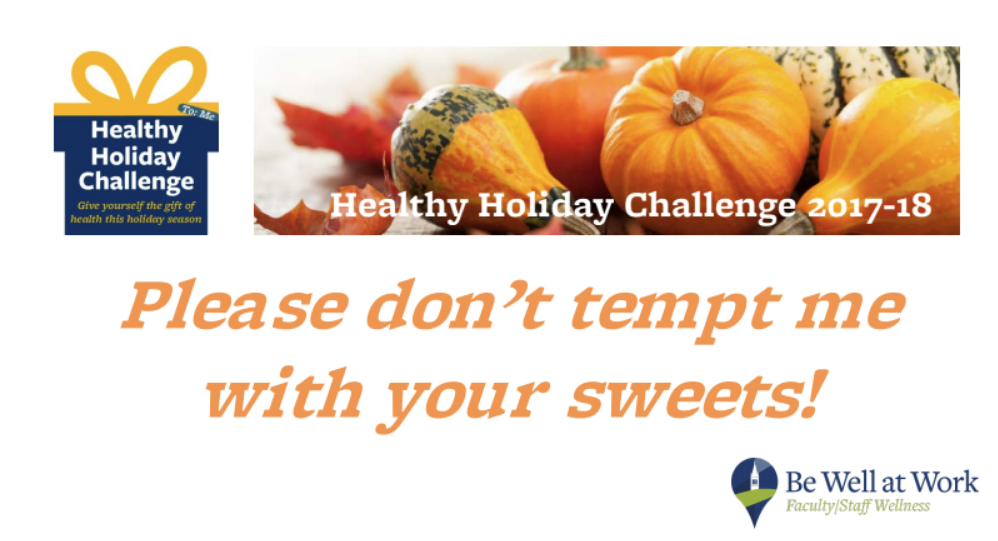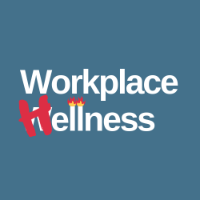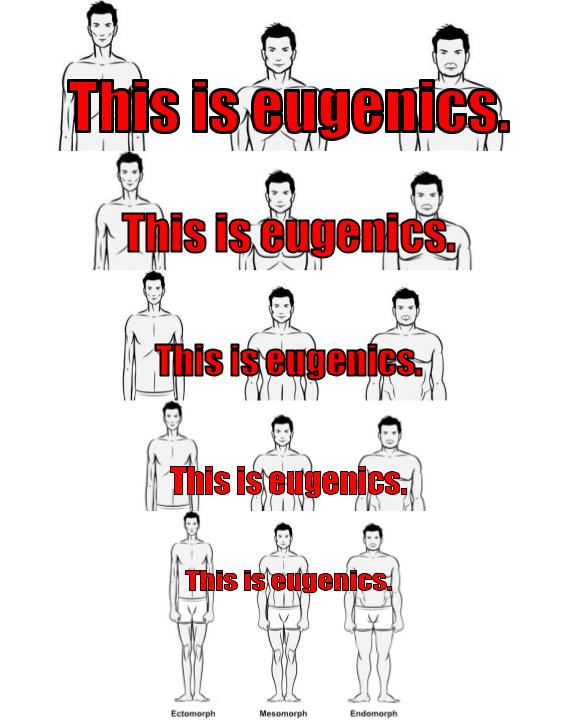
CW: Food shaming, body/weight shaming, rape culture, eating disorders
Disclaimer: I realize I’ve done two holiday-related posts nowhere near the holidays they are about, but if Starbucks is selling pumpkin spice lattes (no hate to the PSL, just to manufactured scarcity), I feel justified preparing you for the onslaught of terrible workplace wellness programming that is just around the corner.
The (American/Christian) fall and winter holidays are a particularly fraught time for workplace wellness initiatives because in the workplace wellness world,
- food is scary, and
- food is central to many fall and winter holidays; therefore,
- holidays are scary. (Yeah, I can build a syllogism.)
The University of California system deals with the terrifying Thanksgiving-Christmas-New Year’s trifecta using a program called “Maintain Don’t Gain,”* an oddly-imperative name that I imagine the creators chose because it rhymes. The program provides such a wealth of material that I will return to it in future posts, but today I wanted to focus on the table tents that you can print out and put on your desk to tell your coworkers that they are demons.
*This table tent image doesn’t have the “Maintain Don’t Gain” language on it, but is a part of the systemwide program. I found it here.

The table tent uses the standard language of food as temptation, which is common in workplace wellness and also in American culture, as this blog has discussed. But this particular image really brings home the message with “Please don’t tempt me with your sweets” (emphasis mine). The person bringing treats into the office becomes the temptor (And who tempts people? DEMONS!) and is told to stop their wicked, tempting ways. It might as well read, “HEY DEBBIE! YEAH, YOU! DON’T YOU DARE SHOW ME YOUR PEANUT BRITTLE!” The sign comes across as overly personal and shaming, and it also presumes that the person putting the sign up is incapable of politely declining treats, which feeds into the myth that food choices are about “self control” and “willpower.”
On the one hand, I don’t understand the need for this table tent. It shames people who bring in treats, makes them out to be demons, and also sets up a virtue competition where the person displaying the sign is presumed to be morally superior to those who don’t. As someone who has recovered from anorexia, trust me when I say that seeing this sign on people’s desks in the workplace would make it hard to not focus on my own food choices at work and that I would have to fight back the guilt of *gasp* eating dessert.

On the other hand, people are terrible at respecting others’ boundaries around food. A friend and I were talking about how sometimes we feel pressured by people to eat food we can’t or don’t want to eat. We both sense that the people doing this feel guilty about eating food and that if we also ate the food it would lessen their guilt. That approach is both weird and unhelpful, and neither I nor you can fix another person’s hang-ups around eating. But I can give you a basic guide for how to deal with food in your workplace:
Erika’s Amazingly Simple Survival Guide for Sharing Food in the Workplace
- Don’t judge other people for what they are eating or not eating.
- Don’t judge yourself for what you’re eating or not eating.
- If you’re offering food to people, offer it once or put it in a place where people can take it if they want it. Bonus points if you include a card with the ingredients so people with allergies/sensitivities can make safe choices!
- If they say “No,” accept that and move on.
- If they say, “Oh I shouldn’t because of sugar/carbs/fats/my diet/I’m trying to lose weight/it’s bad/I only eat the alien spawn of my great lord Hrgaxxxxor,” move on. You can always (but are never obligated to) add, “I’m glad that works for you. I practice intuitive eating/prefer not to put moral value onto food/don’t diet/don’t know about Hrgaxxxxor but would like to hear more about that some time.” This politely pushes back on food shaming but isn’t aggressive. Is it awkward the first few times you do it? Yes! Does it get easier? Yes!
- If someone offers you food and you don’t want it, say “No thanks!” politely and cheerfully. Don’t explain why you’re saying no. If they repeat their offer, say “No thanks!” again. If they get weird about it, ask pleasantly, “Why are you not taking ‘no’ for an answer?”
Some people will be very weird about this, but that’s on them. No one needs a table tent telling coworkers that they are demons.






